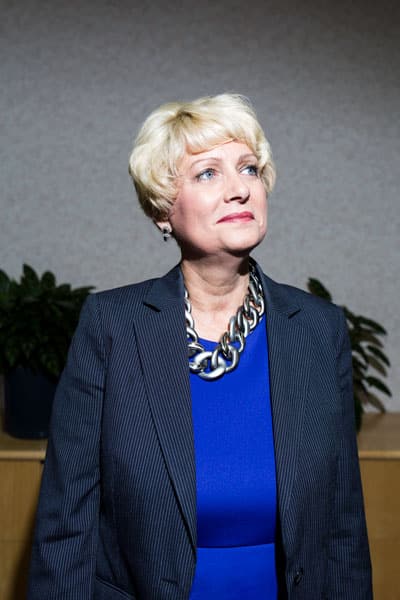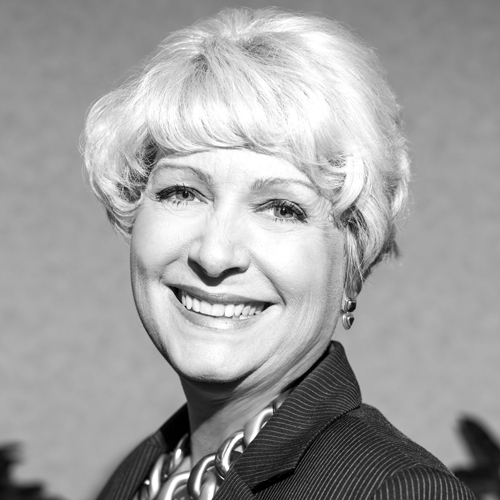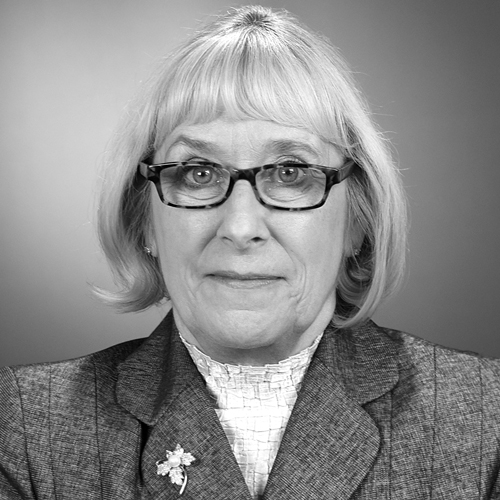It happened many years ago, but Janice Klostermeier vividly recalls the conversation that kept her from her first CFO job in a major hospital. She had spent nearly two decades in the healthcare industry by then—including the past two years in senior management for a hospital. She held a master’s degree in healthcare administration; she was also a CPA and a Fellow of the American College of Healthcare Executives. “I had credentials none of [the other applicants] had,” she says.
Nonetheless, the hospital’s CEO quelled the possibility with just one sentence in a face-to-face conversation: I can’t put a woman in that position.
“And that went straight to my heart—this was the twenty-first century, not the Dark Ages,” Klostermeier says, incredulously. “But I immediately recovered because one of the things you do in this business as a female is recover quickly—and don’t ever become a victim. I said, ‘I appreciate your position on that. . . . What can you do for me?’”

What he could do for her wasn’t nearly enough, considering that she started working—quite successfully—as an independent consultant shortly afterward. Today, Klostermeier is the CFO at the Hollywood Presbyterian Medical Center in Los Angeles. That’s not bad for someone who says she has “gone about everything the wrong way” in her career.
That journey logged a lot of miles in Texas. Not only was Klostermeier born and raised there, but she had spent many years in the Lone Star State pursuing higher education—first at a junior college and then at University of Texas at Arlington (UTA). She married at nineteen and worked as a secretary and bookkeeper, a job she started just days after graduating high school. It was admittedly a lot on her plate for an extended period of time. “I’d graduated high school and junior college with honors,” she recalls. “But after slogging through seven-and-a-half years without a break, you get burned out.”
Her grades started to slide. At age twenty-five and pregnant with her first child, Klostermeier had enough credits to graduate but a subpar GPA in accounting courses, so she tracked down a school administrator for assistance. “I was told the school didn’t need students like me who couldn’t get out on their own merit,” she recalls. “It was a horrible thing to say.”
But Klostermeier bounced back, getting on the phone the next day to schedule an appointment with the university president. Not only did he say that she was free to graduate, but he also assured her that she was exactly the kind of student UTA was proud to call its own. She accepted her first opportunity in the healthcare industry that very same year.
However, in the late 1980s, Klostermeier says, the field didn’t carry the same reverence that it does now—particularly with accountants. Those with the best transcripts were striving for a start with one of the “Big Eight” accounting firms at the time, including Ernst & Whinney and Coopers & Lybrand. Klostermeier, meanwhile, took an alternate route. “My job wasn’t sought after,” she says about the position at her first healthcare company, which involved internal auditing. “I just barely had my fingers on the bottom rung of the ladder.”
What she soon realized, though, was that she was surrounded at this job by former public accountants that had burned out quickly with those big-name employers and came to healthcare seeking a calmer, lower-pressure work environment. This led to Klostermeier receiving “Big Eight”-style training, which in turn led to her ascent up the healthcare ladder. Four years after her UTA graduation—and not yet thirty years old—she found herself thriving as the CFO of a one hundred-bed hospital.
The road between that CFO position and her current one was more a cherished scenic route than an express lane. Klostermeier was system controller in a couple of different locations before consulting independently. Meanwhile, she raised her children, divorced, and then met and married her current husband. Before coming to the West Coast, she spent several years on the East Coast as the CFO (and, eventually, chief administrative officer) of the largest privately held emergency medical group in the Northeast. When the group decided to sell and made her a generous financial offer, Klostermeier and her new husband headed west.
As successful as her journey has been, one aspect still proves frustrating: the continued absence of women in the highest ranks of the healthcare industry. Klostermeier acknowledges that the majority of chief nursing officers are female, though. “The other positions—CFO, COO, CEO—are few and far between for women,” she says. “There are over 5,600 hospitals across the United States, yet it’s difficult to find many women in C-suites, especially when you get to the big systems. Even where I’m at right now . . . it’s a single hospital. Would I have this much success in a system? I don’t know.”
While Klostermeier feels it may be at least partly attributable to a generational shift—e.g., women choosing to raise children later in life, putting healthcare career growth on the back burner—she believes C-suite opportunities are there if women make the effort to get noticed in their day-to-day work. “You have to risk being assertive,” she says. “Networking is a must, particularly through organizations like the American College of Healthcare Executives. You need to serve on committees and serve on boards if you can.”
But more than anything, she stresses the importance of women learning all they can from those above them, regardless of gender. “I’ve had some amazing CEOs mentoring me along the way,” Klostermeier says. “There are harsh ones out there that can damage one’s self-esteem and career track, but if you find one that respects you—and I’ve found several—you’ve got it made.”


